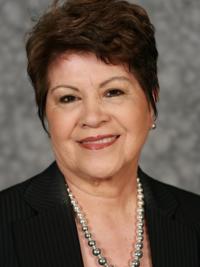Margarita C.Treviño, R.N., M.S., Ph.D. is a clinical assistant professor at the University of Texas at Arlington. Treviño is director of an online Spanish-language public health certificate program in Latin America that the UT Arlington College of Nursing began earlier this year.
She recently returned from a tour of Latin America, where she talked with college officials and media in Costa Rica, Panama, and Colombia about the new program. Treviño, who has been a nurse for 47 years, shares her career story with MinorityNurse.com.
What made you decide to go into the nursing field? What inspired you?
My greatest inspiration was my parents. They did not have a formal education. They only went to school to the third grade. However, they both developed their own small businesses, and each of them had a strong work-ethic. They learned to read and write by reading the Bible and were fluent bi-lingual. 
I grew up in a small, rural southwest Texas community where our home was “the stopping place” for many people in need. Being in close geographical proximity to the Mexican border, undocumented workers (men and women) would stop there for food, a drink of water, clothes and for work when possible. It was not unusual for us as children to sit at our dinner table with total strangers. We almost expected it. There was always an extra plate of beans and tortillas to pass around.
Those were the days when doctors still made home visits. Our local family physician taught my mother how to give injections, and I would see some of his Hispanic patients come to our home for their treatment. I would watch my mother sterilize the syringes and give the injections with much care.
My mother would tell us about times when she would also assist the family physician with home deliveries, particularly in the winter months. Growing-up in this type of “caring for others” environment had a major impact on my desire to become a nurse.
Another major factor was an innate desire to be involved in education. As a senior in high school, I debated whether to become an educator or a nurse. If I became an educator, I would not be able to take care of persons with health problems. If I became a nurse, I would be able to take care of persons with health problems and also be an educator. So I elected to become a nurse. The duality of this desire still burns in my bones.
What has been your career path? What led you to where you are today?
Upon graduation, I started my nursing career in cardiac critical care. All along, I had the desire to ultimately progress to a position in higher education. So I traversed through various positions in adult critical care, pediatrics, medical-surgical nursing, and community health. Following my tenure in direct patient care, I progressed to become a nurse educator and have served in this capacity in three major universities.
Describe your current position and what impact you have as a nurse in your current role.
As director of the Certificate Program in Latin America, I have had the opportunity to be part of a UTA College of Nursing team that has established a collaborative working relationship with a network of Latin American universities. Along with Dallas-based Academic Partnerships and the Whitney International University System, we just launched a Certificate in Public Health program in seven countries: Argentina, Chile, Costa Rica, Colombia, Panama, Paraguay, and Peru and seven universities. Our goal is to be active participants in the global vision to improve patient care outcomes and create pathways of professional mobility for health care providers around the world.
As the newly appointed Director of the Center for Hispanic Studies in Nursing and Health, I will seek opportunities for growth through involvement in our local community, in addition to establishing links of statewide, national and international collaboration to promote health among vulnerable population groups. Research is one of our priorities.
Have you had any issues related to being a minority nurse?
I have not focused on being a minority nurse. I have capitalized on the privilege to serve. I learned this lesson early in life from my parents.
What general advice do you have for other minority nurses?
Follow your innermost desires to fulfill your destiny. Know your purpose in life. We all have an assignment to complete. Keep your life goals fresh at the forefront of your mind. Predetermine to turn obstacles along the way into opportunities for the future. Learn from your mistakes.
Know what you are willing to live for. Know what you are willing to die for. Identify your values. Know what is non-negotiable in your life. Learn to say no. If a request is made of you that is incompatible with your goals, do not agree to it. You can say no gracefully. If you do accept responsibility for something, do what you say you are going to do.
Safeguard your dignity. Base your sense of self-worth on who the Bible says that you are, not on the opinion of others.
Seek counsel. Do not attempt to live life “on your own.” We all need someone to lean on.
Learn to love and to forgive. These are the greatest attributes anyone can have.
Where do you see yourself in 5 years? 10 years?
I will be involved in efforts to help people in need.
Denene Brox is a freelance writer based in Kansas City.
- Retirement Planning for Nurses - July 17, 2019
- How to Combat Nurse Burnout - April 9, 2019
- Are For-Profit Nursing Schools a Good Choice? - October 16, 2018



